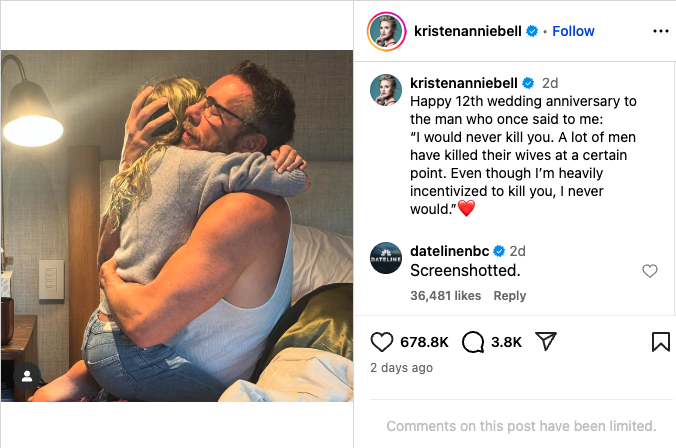
Who Should Say “I Love You” First (And Why)
I think the "I love you" is wildly important, which is why the idea of it as a pawn in the battle of who holds the cards in the relationship rubbed me the wrong way. At first...
By Jessie Rosen
My roommate Mike and I recently had a conversation about the dreaded three words. Well, dreaded if you’re the two of us, who overthink every element of a relationship to the point where even the happiest milestones are marred in neuroses.
I was saying I thought the moment needed to be incredibly special/ meaningful/ cinematic — Mike was agreeing. Mike was saying he thought the moment needed to be fairly serious, as in you can’t say it silly/ jokingly and count that as the first “I love you” — I was agreeing.
Then Mike — who has blessedly grown less over-analytical during his own long term relationship — dropped this knowledge.
- “I think the pursuer can’t say “I love you” first.
- “Wait, what?”
- “Yeah, I think that the person who was really driving it from the beginning isn’t the person who says “I love you” first.
- Right. That person. Why?
- Balance of power. It’s like they already put their neck out there big time to make the relationship happen. Now the other person is up.
For as many rules as I write, my ultimate rule is that there aren’t any. Relationships are built on far stranger set-ups than the pursuer both igniting the relationship and saying those three words first. Maybe that person is just more vocal? More comfortable? Less neurotic.
I think “I love you” is wildly important, which is why the idea of it being used as a pawn in the battle of relationship dominance rubbed me the wrong way.
Then I got to thinking about what it feels like to be the pursuer — the one who takes the leap of faith to say, “Do you want to grab a drink?,” “I really like you…” and”I want us to be dating.” For as sure as you can be that the other person’s “me too” (x 3) is genuine, there’s always doubt. It’s easier to say “me too.” And some people are built of “me too” cloth — especially when it comes to relationships. Imagine if you’re the type of pursuer in the type of situation where you feel like you’ve gotten to each phase first and therefore made each phase happen, in a way.
In most cases, the pursuer knows how they feel. They probably even know that they’re at “I love you” level before their slower half. Maybe they figure, what the heck, I’ve gone this far, may as well throw it all out on the line, plop the “I love you” down on the table, and find out once and for all where I stand.
Or maybe for some pursuers, no matter how bold, those three words are kept at bay. They felt strongly, they acted strongly, but now a level of self-preservation kicks in, and they need the other person in this relationship to meet them where they are before they’re willing to go further. It’s less a power play and more a protection play. Some people are willing to be fully vulnerable without knowing or caring what they’re going to get back. Others are more comfortable with things built on a clearer degree of relationship milestone equality.
I still stand where I did with my “no theory is perfect” rule, but I have to admit Mike’s assessment holds water. I also have to admit that by “holds water” I mean that things played out according to his prescribed plan in the story of my own three-word dance. And I do believe the fact that the pursuee in my relationship said it first helped us both feel more secure about everything involved with it being said.
But MAN was I nervous. ![]()











